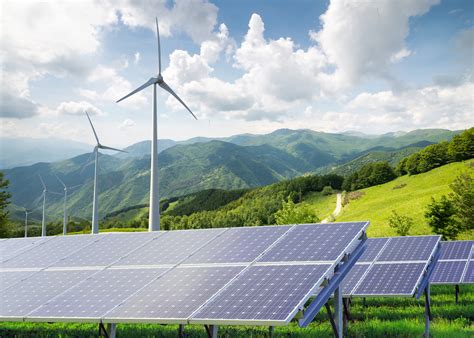How Tariffs Could Upend the Transition to Cleaner Energy
—
“Policy Whiplash” Threatening Access to Affordable Energy
In a world where conversations about energy are increasingly dominated by climate change, renewable resources, and sustainability, the role of tariffs in shaping this landscape cannot be underestimated. The story begins with President Trump’s decisions that have sent ripples through the renewable energy sector – from freezing federal support for green projects to initiating a trade war with far-reaching consequences.
The imposition of tariffs has created a domino effect across various industries, especially impacting U.S. companies heavily reliant on clean energy technology imported from overseas markets like the European Union, China, and Southeast Asia. The move not only drives up costs but also disrupts established global supply chains vital for renewable energy production.
Expert Insight: Vanessa Sciarra from the American Clean Power Association warns that this “policy whiplash” puts Americans at risk of losing access to affordable and reliable energy sources as supply chains face unprecedented challenges.
As steel prices soar for wind turbine construction and electric vehicle battery expenses increase due to tariffs, the repercussions extend beyond cleaner energy initiatives. Even traditional fossil fuel projects bear the brunt of these policies, contradicting efforts to make oil and gas more accessible while inadvertently inflating costs associated with their production.
The Global Impact: Beyond U.S. borders, these tariff decisions are expected to reshape worldwide energy dynamics significantly. An industry once buoyed by surging U.S. oil and gas exports now faces uncertainties as international buyers seek alternatives to reduce greenhouse gas emissions.
Potential retaliatory measures from economic powerhouses like China or the European Union could further complicate matters by restricting American fossil fuel exports. This ripple effect underscores how interconnected economies influence each other’s energy strategies in an increasingly intertwined global marketplace.
While intentions behind such policy moves may vary, their implications echo far beyond national borders into a realm where environmental commitments intersect with economic interests in complex ways.
—
Navigating through these turbulent waters requires a delicate balance between promoting domestic industries and fostering sustainable practices essential for combating climate change. As stakeholders grapple with evolving regulations and trade dynamics, one thing remains clear – the interplay between tariffs and clean energy is an intricate dance reshaping our present and future energy landscapes alike.

